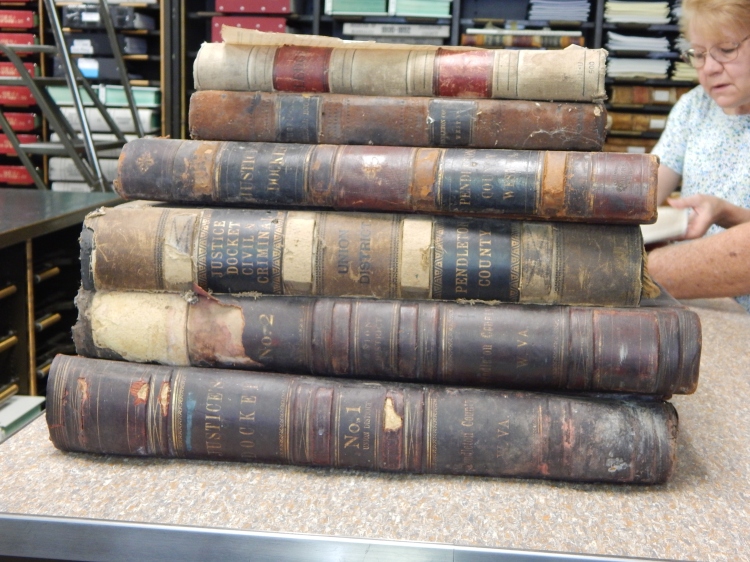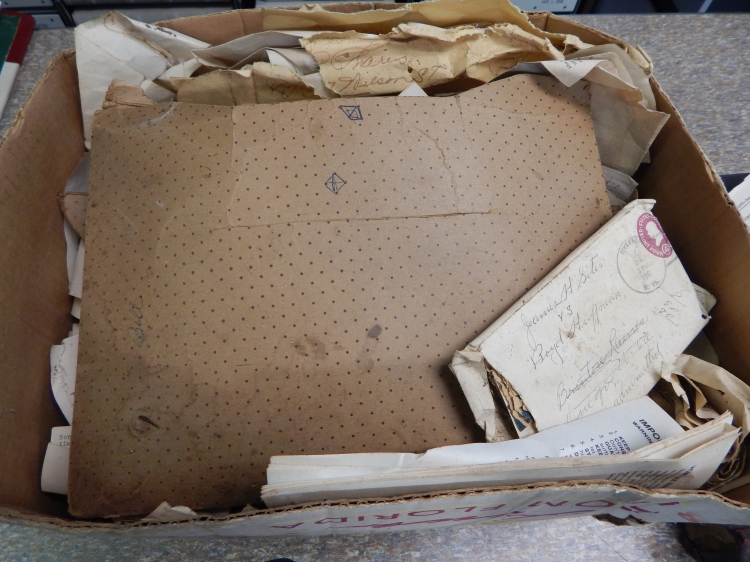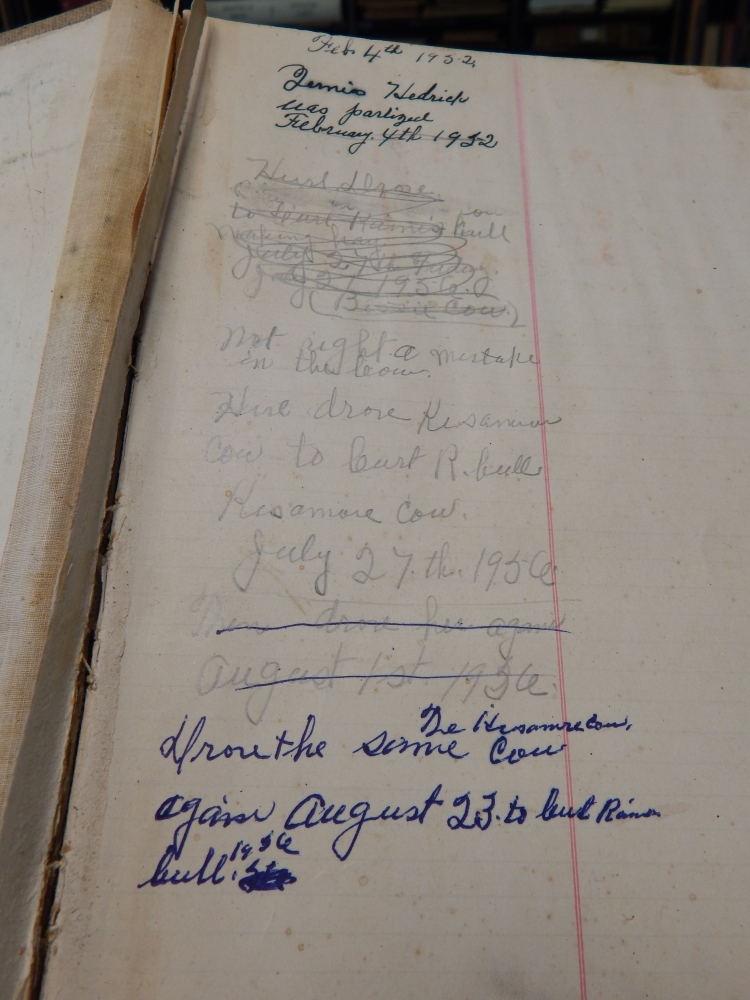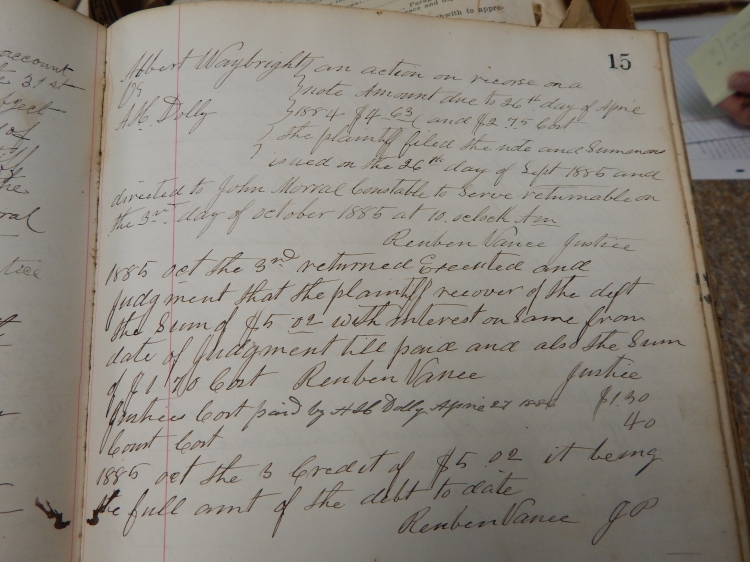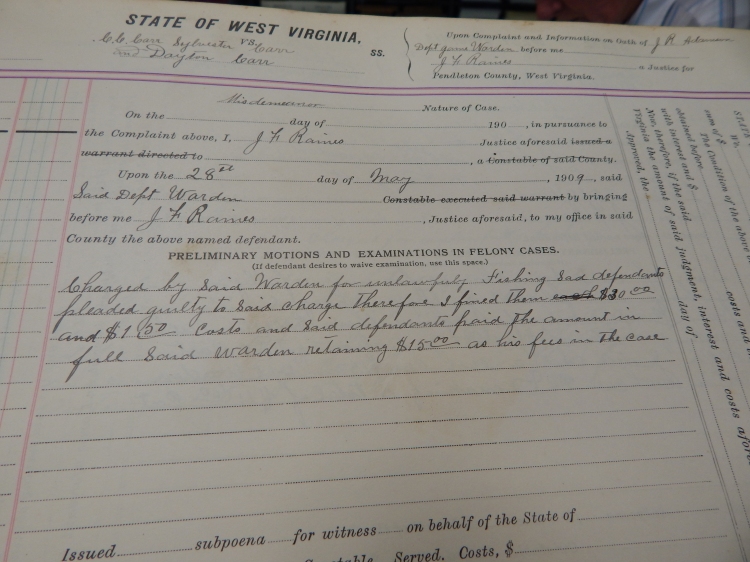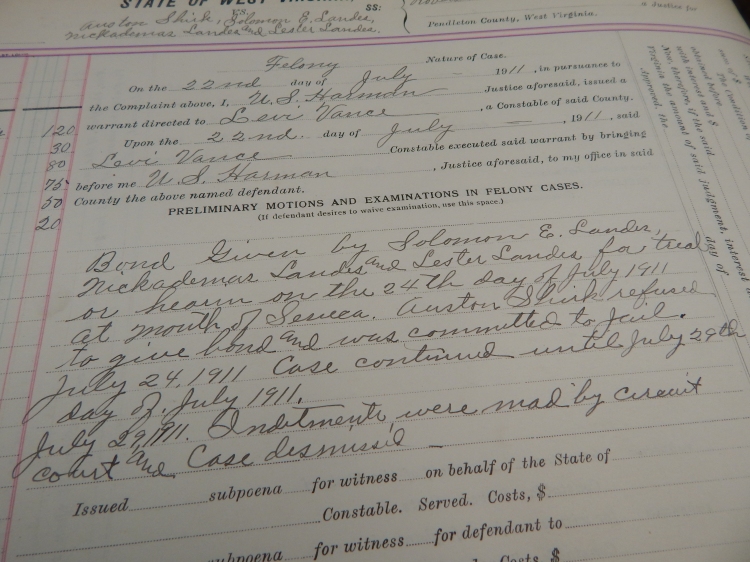I’m really glad that I had the opportunity to try out a “fixer-upper” and live without “typical” amenities for over a year. I put the word typical in quotation marks because for so many folks in the mountains here, the things I once assumed everyone had – automatic washers and dryers, a gas or electric oven, central heat, showers – are luxuries that I now know are not commonplace. And they truly ARE luxuries.
Here, some folks have to trek to the laundromat for any number of reasons even if they do have the means to afford a washer or dryer. There may be no running water to the house – water is collected from a spring or well and toted to the home for drinking and cooking and bathing. Can you imagine life with no indoor plumbing? Since washing clothes takes so much water, it’s easier just to go to the laundromat instead. In these parts, ringer washers are still used in some homes and people who use them absolutely LOVE them. Laundry is hung on a line to dry in many, many homes here – even in the winter time. I’ve been told that the freezing weather sort of “freeze dries” the laundry, though I haven’t tried that one yet!
Sometimes there IS indoor plumbing, but the well water is so bad that it can no longer be used – the water is brackish. Here, the underlying bedrock is sandstone and limestone which acts like a sieve of sorts. Anything falling on the soil above – rain, animal waste, chemicals from crops or lawns – filters through the soil, through the bedrock, to the water table below. So your neighbor’s cattle could very well affect the quality of the water in YOUR well! The county is in the process of adding public water pipes for this very reason. Seneca Rocks does not have public water – it’s either well water or spring water.
If a person lives in a home as I once did where it’s impossible to have access to any sort of gas tank for heating your home in the winter, she has to rely on either electricity or wood to heat her home. A lot of these old homes simply do not have adequate electrical wiring to support a heating system (or other electrical appliances). And the cost of running space heaters in the winter is outrageous – especially in an old house with single-pane windows and no insulation.
Many older homes in these mountains were heated – or still ARE heated – with a single wood-burning stove. This is called a wood heater and it looks like one of those old enormous TV’s from the 50’s – a big brown or black box. Except it opens to reveal a space for wood to burn, like an oven, only it’s just to heat with. A stovepipe runs from the heater to the outside to take away the smoke. But some of the older systems aren’t exactly smoke-free and leave telltale traces of smoke on ceilings and the top of walls. And you know, if you can see smoke residue there, it’s in a person’s lungs, too.
Another eye-opener for me was that, while wood-burning heaters did the trick, there is no central duct system running through the house to distribute the heat. In my old house, I was told the heat went up the stairs in the winter and kept it warm up there. But some of my friends who grew up in older homes like this remember waking up to some pretty chilly mornings (think Laura Ingalls Wilder’s story, “The Long Winter”).
Some folks living back in the hollers here still use outhouses – not many, but I have met some. And folks younger than I am remember growing up taking only baths. One young man I met last Sunday said he had his first shower when he was about 16 – he’d taken baths up until then. I asked him if he remembered what he thought of that first shower. “It was a great improvement!” he said.
My old house has a wood cookstove in the kitchen, as do older homes in the hollers here. One of the families up Brushy Run Road has a wood cookstove just like the one in the kitchen I had, though in better condition, and that is what she uses to cook with during the winter. It not only cooks a great meal, it helps to heat the house. (People who use wood cookstoves love the flavor of the foods prepared that way – they tell me it’s the difference between grilling a steak outside over a charcoal or wood fire vs. broiling it in an electric oven.) In the summer, a different stove was used – gas or electric, which helped to cut down on the heat generated in the house – or a stove in a “summer kitchen” was used. A summer kitchen is a small room off the back of the house where a second wood cookstove is kept and used only during the hot months and especially for canning. Here, women who process foods either use a pressure canner (did you know a water bath canner requires three hours to can green beans in quarts?) or a water bath canner. If they have a summer kitchen, a garage, or a basement in which to do this hot chore, it makes the work more bearable for the rest of the house.
I am MUCH more grateful for things I’ve taken for granted – having my own washer and dryer, having an oven (I haven’t used that yet, though – have to get the kitchen unpacked and then I will!), and having a shower (haven’t used that yet, either – I bought a tool last night to remove the old caulk where the tub meets the wall part of the shower and will do that today, then use new caulk to seal that area. Since I know this shower has been dry, I don’t want to use it until I’ve done the caulking. When I got home last night from Walmart, I thought I’d try out the new caulk remover and see if it’s any good – oh, is it ever! I had a third of the caulk out in less than a minute! I will still need to go back and clean it thoroughly but that tool is a sweet little tool!)
You know what’s funny? I’m right on a “major road” – for Seneca Rocks, anyway. But I actually feel at home with the road noise! When we lived in Stafford, we heard the traffic from I-95 and Route 1, which runs parallel to I-95 and was just as busy as the bigger highway, just smaller. So it’s kind of nice in a reassuring sort of way. And that has been the biggest surprise of all – I actually LIKE hearing the traffic and the trucks! It reminds me of my freshman year at Michigan State University – we had a train running fairly close to the Wonders Hall, my dorm, and it would either keep me up or wake me up at first. But when I came home for a visit, I missed that train sound! Guess you can get used to anything, eh?
Even something as simple as parking is something I shall never take for granted again! Here at the new place, I park on a LEVEL surface and can access all the doors to the van – at the old house, I parked at such an angle and so close to two old I-beams from a former bridge that washed away in a flood that I could only get to the driver’s side door and the tailgate door. And getting in the van on that sort of incline was like stepping up and down a ladder when entering and exiting the vehicle – seriously! When I had to get in and had my arms full, it was pretty easy – like walking up a staircase! Of course, trying to open the door from the inside when I parked was a bit of a struggle – pushing a heavy door up instead of just out takes a bit of muscle. Now, if I have a lot of items to bring into the house, I can park really close to the front door – it’s not a 200 foot walk to the house. I don’t have to watch my step mounting and dismounting a footbridge or walking across a meadow with lots of rocks – at my new place, the walk from van to home is level and there are no rocks to stumble over, no holes to twist my ankle on! For those of you with attached garages – automatic garage door openers – well, consider yourselves in the lap of luxury!
I never would’ve dreamed I could write a short essay on the advantages of modern conveniences! But I am incredibly blessed for having had the chance to live a different sort of life for the past year. May I never take these delightful amenities for granted ever again!
